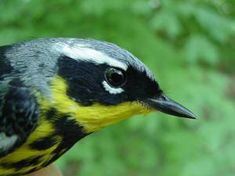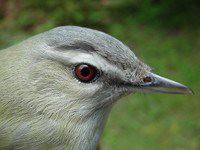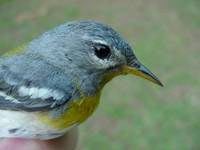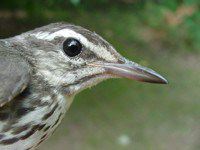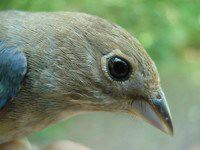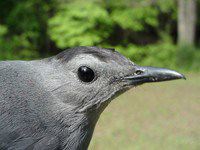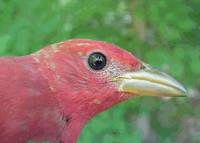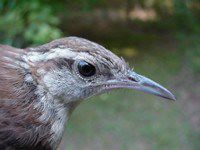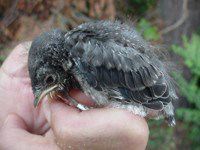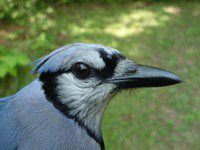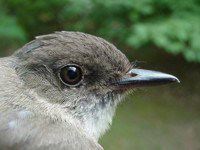 HOME: www.hiltonpond.org |
|
||
|
|
|||
|
|
|||
|
|
|||
|
|
|||
|
|
|||
|
THIS WEEK at HILTON POND |
|
The second Saturday in May is International Migratory Bird Day (IMBD)--a time to celebrate and appreciate birds that return to a region after spending time elsewhere. 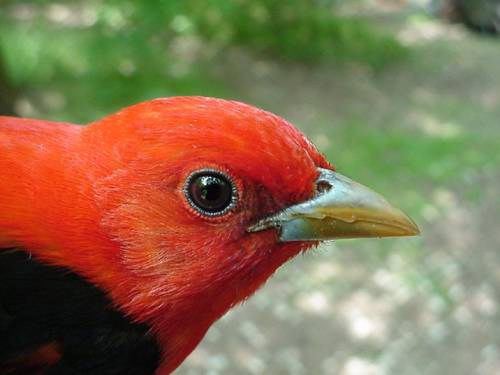 All photos & text © Hilton Pond Center In our usual hemispheric bias, U.S. and Canadian citizens often refer to IMBD as a celebration of the ARRIVAL of birds in spring; we would do well to remember that folks in the tropics are likewise commemorating the DEPARTURE of birds that have spent the non-breeding season as far away as South America. (And let's not forget that other hemispheres besides ours also have northward movements of birds at this time of year--Africa to Europe or Australia to Asia, for example--making migration truly an international event.) Here at Hilton Pond Center in the Carolina Piedmont, spring migration starts in early April and continues until almost June, but the biggest influx and greatest variety of birds do occur the second week in May. This year we observed International Migratory Bird Day (12 May) pretty much the way we do most days--running mist nets to sample local bird life, but the assortment of birds we caught had special impact. Walking the net lanes, we spent a lot of time doing what IMBD is supposed to make us do--think about these birds we claim as our own but that we share with people in other states, other counties, even other continents. With each bird we caught, we were moved by its beauty and the story it could tell if only it could talk.
Then there was a female Northern Parula, back from Nicaragua long enough to nest locally and develop a brood patch . . . the Louisiana Waterthrush that had walked streams in Panama like the one that flows from Hilton Pond . . . Each of these birds has made its arduous round trip at least once, and each has survived potential dangers along and on both ends of the migratory path--from habitat destruction to communications towers, from feral cats to pesticide spray. How ever do they do it?
at Hilton Pond Center on International Migratory Bird Day 2001, click on any underlined bird names below.
If you enjoy "This Week at Hilton Pond," please help Support Hilton Pond Center for Piedmont Natural History |
|||||||||||||
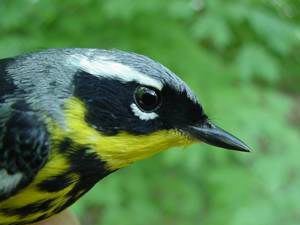 Appropriately for IMBD, nearly every bird we banded was a Neotropical migrant--a bird that hatched out somewhere in the U.S. or Canada but probably has spent more months of of its life in a country where the language is not English, but Spanish or Portuguese. I could only speculate about exactly where these birds have been since last fall, but perhaps the adult male Magnolia Warbler (left) in full breeding plumage had wintered in Costa Rica, and the Red-eyed Vireo had journeyed from whatever rain forests remain in the Amazon basin.
Appropriately for IMBD, nearly every bird we banded was a Neotropical migrant--a bird that hatched out somewhere in the U.S. or Canada but probably has spent more months of of its life in a country where the language is not English, but Spanish or Portuguese. I could only speculate about exactly where these birds have been since last fall, but perhaps the adult male Magnolia Warbler (left) in full breeding plumage had wintered in Costa Rica, and the Red-eyed Vireo had journeyed from whatever rain forests remain in the Amazon basin.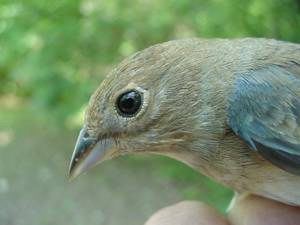 the female Indigo Bunting (below right) that ate seeds and winter insects in Mexican scrub. . . a Gray Catbird that flew across the Caribbean from the West Indies . . . and the second-year Summer Tanager male (below left) that spent the last several months in Brazil molting into brilliant red plumage tinged with a few yellow feathers that belied its age.
the female Indigo Bunting (below right) that ate seeds and winter insects in Mexican scrub. . . a Gray Catbird that flew across the Caribbean from the West Indies . . . and the second-year Summer Tanager male (below left) that spent the last several months in Brazil molting into brilliant red plumage tinged with a few yellow feathers that belied its age.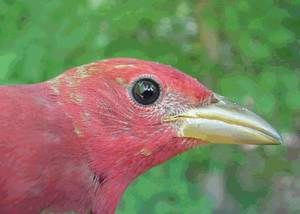 Too often folks take our avian friends for granted, so we're especially grateful we could have these birds in the hand at Hilton Pond Center as we pondered the life of each. Pardon our waxing poetic, but for us this was an especially inspirational International Migratory Bird Day, and we hope yours was, too.
Too often folks take our avian friends for granted, so we're especially grateful we could have these birds in the hand at Hilton Pond Center as we pondered the life of each. Pardon our waxing poetic, but for us this was an especially inspirational International Migratory Bird Day, and we hope yours was, too.